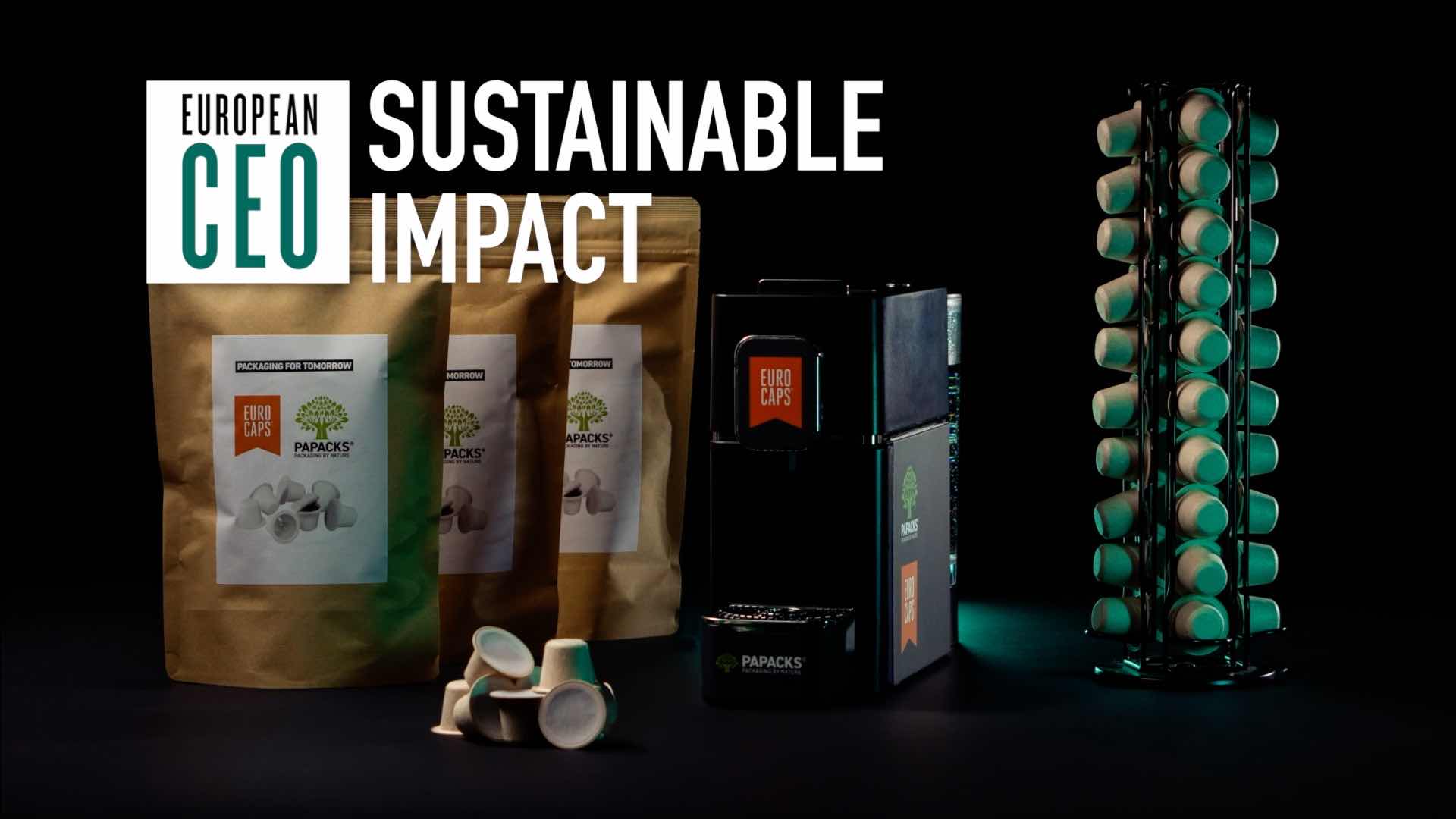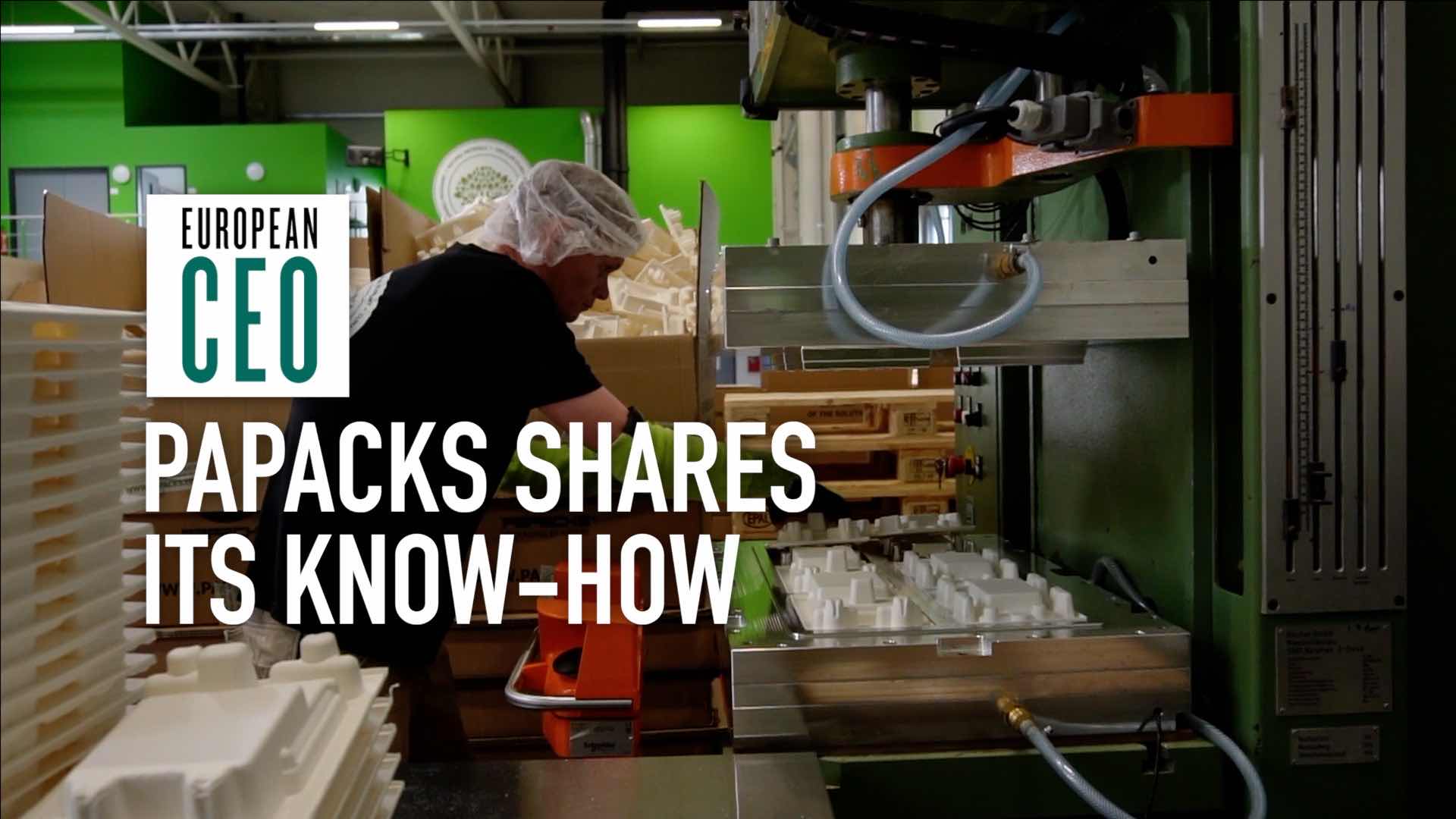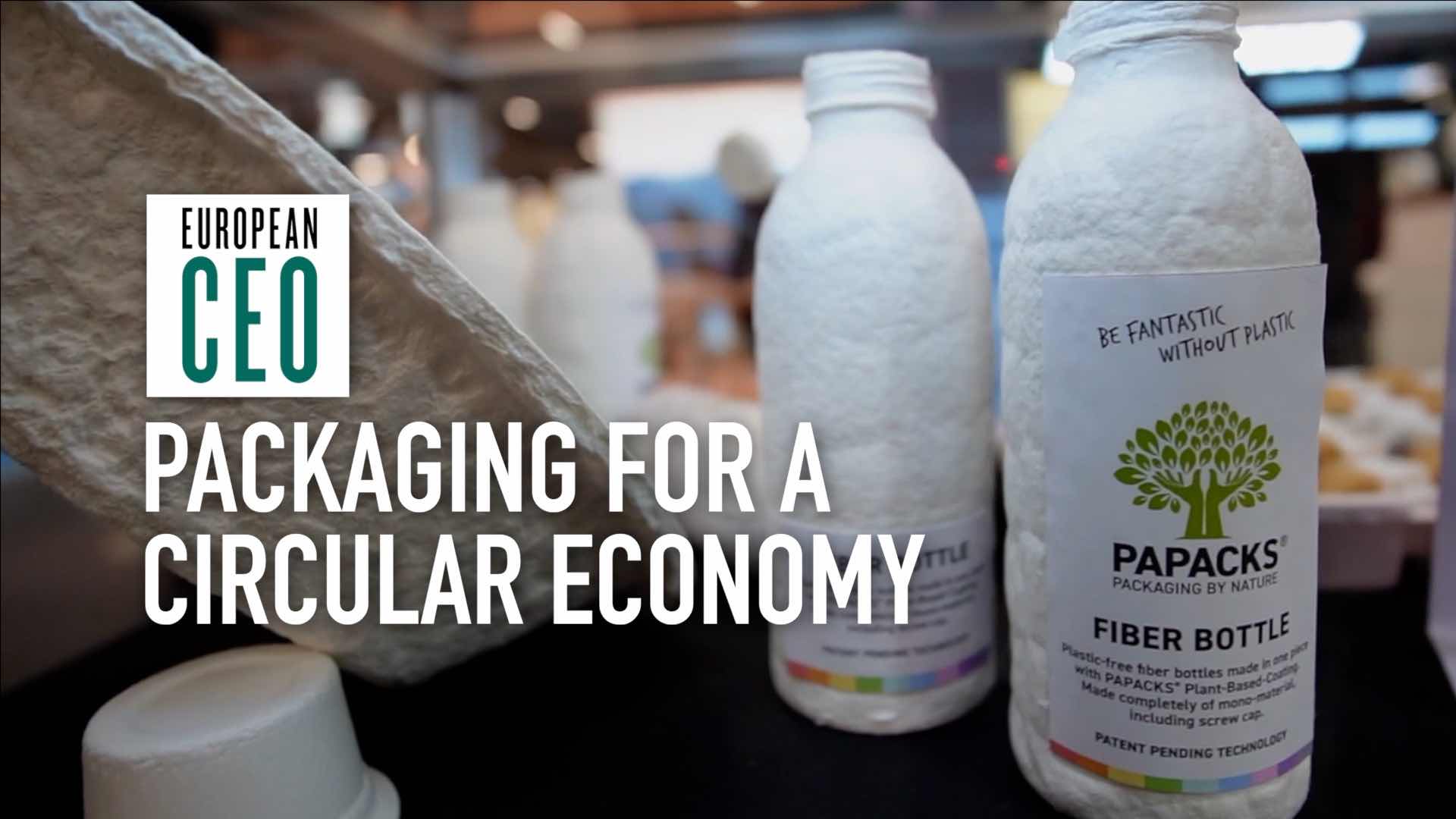How Papacks is replacing single use plastic with molded plant fiber
Tree fibers, bamboo, sweetgrasses, and even hemp can all be molded into perfectly functional replicas of plastic products
Transcript
Papacks is the sustainable packaging manufacturer that’s working to eradicate plastic in everything from food containers and water bottles to cosmetics and medical packaging. Founder and CEO Tahsin Dag explains how the technology works, the advantages of producing packaging and other single-use products using molded fiber instead of plastic, and why industrial hemp is such a promising and sustainable raw material.
European CEO: Tahsin, how are you doing this? What’s possible with your technology?
Tahsin Dag: Yes, so, we research the renewable materials. So we can produce from different fibers. We talk about cellulose fibers from trees, polycultures, hemp – industrial hemp. Bamboo, sweetgrasses.
And we are very very close linked to the customer’s requirements. So we design the product with the requirements of the customer. Different products in cosmetics, in food, in pharmaceutical, in transportation. We identify the right renewable material – it depends on requirements, it depends on the volumes of the material. Then we switch our technology to the need of the fibers. Bring this in combination with organic coatings which are plant-based, fully compostable, recyclable. We can have the same barrier properties in oxygen transmission, water vapour transmission as plastic and multi-layer. We can copy the plastic requirements.
So the whole supply chain in molded pulp, we will produce products for our customers.
European CEO: What are the benefits of producing packaging with molded fiber?
Tahsin Dag: The benefits of producing packaging with molded fiber is of course the lifecycle assessments, the CO2 footprint.
With our technologies, which we can switch to the renewable material and the requirement of the fibers, we can use a lot of renewable materials. You can think then in a mix culture. And you can globally, produce locally – where the renewable material is.
The model that we are bringing in the market is, you decrease the transportation from the raw material to the factory, to the customer. Thousands of kilometres! It doesn’t make sense. So the footprint is much better than to produce plastics.
We invented new technologies which we call Papacks 3D technologies, where you can copy the shape of the plastic products. And molded pulp is perfect to copy designs.
The volumes in just single use plastic is so big in the world. And if you can really switch the handle like this in molded pulp with our technologies, I think this is a gamechanger.
European CEO: Now you mentioned that you are also producing products with hemp…
Tahsin Dag: Yes. I support hemp a lot. Industrial hemp is unique because of the growth times. You can harvest it – if you have the right vegetation – more than three times. The LCA and carbon footprint is negative, because of the fast growing plants. And the beauty is that you utilise the whole plant.
So, we talk about industrial hemp – we don’t have THC. But you can use the seeds, the shells, the fibers, the oil. And we use it for different industries – fibers in textiles, in automotive; the oil in food, in pharmaceuticals.
And end of the day there’s a side product. And this side product we process into hemp pulp. And with this hemp pulp we can produce fantastic products. And this is I think a very unique model which we have at the moment.
But we have big volumes. We have 2,000 acres of our own, and we have access to 5,000 acres. You need big volumes if you want to switch from cellulose trees – which is a 100 years industry – to industrial hemp. And you need the right qualities. And this both we do.


 Papacks CEO: ‘Working with sustainable impact makes people happy’
Papacks CEO: ‘Working with sustainable impact makes people happy’ Papacks goes global by sharing molded fiber technology in licence model
Papacks goes global by sharing molded fiber technology in licence model Think circularity: Molded fiber is the sustainable future of packaging
Think circularity: Molded fiber is the sustainable future of packaging